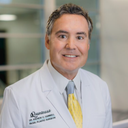Posted underFacelift q&a
monica5357Mar 23, 2017
Answers (31)
From board-certified doctors and trusted medical professionals
Dr. Andrew T. Lyos, MD, FACS

AF
Dr. Andrew T. Lyos, MD, FACS
Board Certified Plastic Surgeon
Answer
Dr. Rajat Gupta, MD, MS, DNB
RD
Dr. Rajat Gupta, MD, MS, DNB
Plastic Surgeon
Answer
Dr. Amir Nakhdjevani, MBBS, MRCS, FRCS(Plast)

AF
Dr. Amir Nakhdjevani, MBBS, MRCS, FRCS(Plast)
Specialist Registered Plastic Surgeon
Answer
Dr. Paul S. Nassif, MD

PM
Dr. Paul S. Nassif, MD
Board Certified Facial Plastic Surgeon
Answer
Dr. Larry S. Nichter, MD, MS, FACS

LF
Dr. Larry S. Nichter, MD, MS, FACS
Board Certified Plastic Surgeon
Answer
Dr. Ritchie Younger, MD

RM
Dr. Ritchie Younger, MD
Certified Facial Plastic Surgeon
Answer
Dr. Alan B. Brackup, MD, FACS

AF
Dr. Alan B. Brackup, MD, FACS
Oculoplastic Surgeon, Board Certified in Ophthalmology
Answer
Dr. William Townley, MD, FRCS(Plast)

WF
Dr. William Townley, MD, FRCS(Plast)
Specialist Registered Plastic Surgeon
Answer
Dr. Evan Ransom, MD, FACS

EF
Dr. Evan Ransom, MD, FACS
Board Certified Facial Plastic Surgeon
Answer
Dr. Dilip D. Madnani, MD, FACS

DF
Dr. Dilip D. Madnani, MD, FACS
Board Certified Facial Plastic Surgeon
Answer
More Facelift Questions
See all Facelift Q&A
WE SEND PRETTY
EMAILS
What’s trending? Who’s turning heads? Which TikTok myths need busting? We’ve got you. No fluff, no gatekeeping—just real talk. Get our free, unfiltered newsletter.




